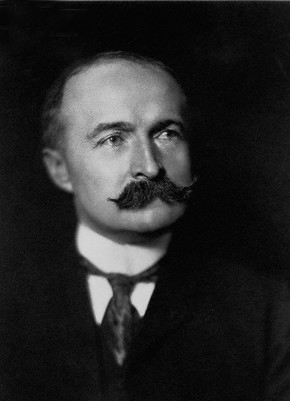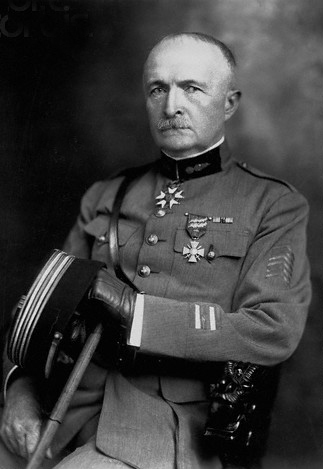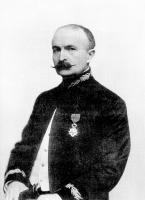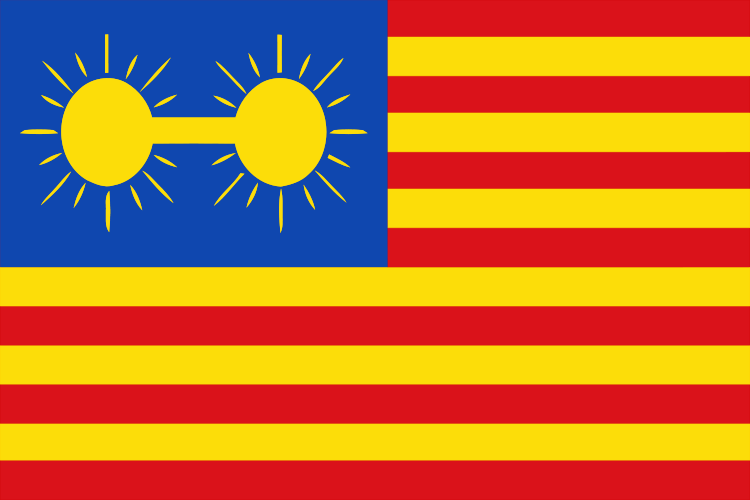<Back to Index>
- Engineer Philippe Jean Bunau - Varilla, 1859
- Painter George Catlin, 1796
- Holy Roman Emperor Joseph I, 1678
PAGE SPONSOR



Philippe-Jean Bunau-Varilla (1859 – 1940), commonly referred to as simply Philippe Bunau-Varilla, was a French engineer and soldier. With the assistance of American lobbyist and lawyer William Nelson Cromwell, Bunau - Varilla greatly influenced the United States' decision concerning the construction site for the famed Panama Canal, today a waterway for trade shipment between the Atlantic and Pacific Oceans. He also worked closely with United States president Theodore Roosevelt in the latter's orchestration of the Panamanian Revolution, resulting in Panama's independence from Colombia. Because of these accomplishments, which occurred during a two year period, historian Donald Mabry has recognized Bunau - Varilla as a "genius" in the art of lobbyist statecraft, and American Heritage magazine has christened him the "Inventor of Panama" and one of the most extraordinary Frenchmen to ever live.
Bunau-Varilla was born on July 26, 1859 in Paris, France. After graduating at age 20 from the École Polytechnique, he remained in France for three years. In 1882 he abandoned his career in public works at the École Nationale des Ponts et Chaussées and traveled to Panama. He arrived at the isthmus in 1884, employed with Ferdinand de Lesseps's Panama Canal Company. He became general manager of the organization and food.
After the Panama Canal Company went bankrupt in 1888 amidst charges of fraud, Bunau - Varilla was left stranded in Panama. He struggled to find a new way to construct the canal. When the New Panama Canal Company sprang up back in his native France, Bunau - Varilla sailed home, having purchased a large amount of stock. However, as de Lesseps' company had before, the New Panama Canal Company soon abandoned efforts to build the canal. It sold the land in Panama to the United States, in hopes that the company would not fail entirely. U.S. President Grover Cleveland, an anti - imperialist, avoided the canal issue. With the election of the more supportive President Theodore Roosevelt, canal planning resumed in the United States.
Bunau-Varilla vociferously promoted construction of the canal. With aid from the New Panama Canal Company's New York attorney, William Nelson Cromwell, he persuaded the government to select Panama as the canal site, as opposed to the popular alternative, Nicaragua. When opponents voiced their interest in constructing a canal through Nicaragua, which was a less politically volatile nation, Bunau - Varilla actively campaigned throughout the Northeast, carrying pictures and postage stamps of Nicaragua's Mt. Momotombo spewing ash and lava over the proposed route. Through lobbying of businessmen, government officials, and the American public, Bunau - Varilla convinced the U.S. Senate to appropriate $40 million to the New Panama Canal Company, under the Spooner Act of 1902. The funds were contingent on negotiating a treaty with Colombia to provide land for the canal in its territory of Panama.
Colombia signed the Hay – Herran Treaty in 1903, ceding land in Panama to the United States for the canal, but the Senate of Colombia rejected ratification. Bunau - Varilla's company was in danger of losing the $40 million of the Spooner Act, and he drew up plans with Panamanian juntas in New York for war. By the eve of the war, Bunau - Varilla had already drafted the new nation's constitution, flag, and military establishment, and promised to float the entire government on his own checkbook. Bunau - Varilla's flag design was later rejected by the Panamanian revolutionary council on the grounds that it was designed by a foreigner. Although he prepared for a small scale civil war, violence was limited. A Chinese laborer died. As promised, President Roosevelt interposed a U.S. naval fleet between the Colombian forces south of the isthmus and Panamanian separatists.
Bunau-Varilla, as Panama's ambassador to the United States, was invested with plenipotentiary powers by President Manuel Amador. Lacking formal consent of the government of Panama, he entered into negotiations with the American Secretary of State, John Hay, to give control of the Panama Canal area to the U.S. No Panamanians signed the resulting Hay – Bunau - Varilla Treaty. Bunau - Varilla had received his ambassadorship through financial assistance to the rebels, he had not lived in Panama for seventeen years, and he never returned. Panamanians long resented his betraying the trust put in him by the new Panamanian authorities. The treaty was finally undone by theTorrijos – Carter Treaties in 1977.
In World War I, Bunau-Varilla served as an officer in the French army and lost a leg at the Battle of Verdun. As an elder lobbyist, he promoted altering the canal from a lock system to a sea - level waterway. He died in Paris, France on May 18, 1940.
